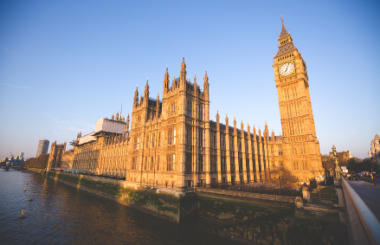The £750m charity sector support package outlined by the government on 8 April has been widely condemned as far too little in light of the losses facing the sector as a result of the Covid-19 pandemic.
Debra Allcock-Tyler, chief executive of the Directory of Social Change, said: “It’s a whopping £3.5bn short. This isn’t about charities surviving and it isn’t just about the coronavirus emergency either – it’s about saving people’s lives. This offer tells us that business matters more than vulnerable citizens.”
But despite calls from charities and the Labour Party for more help for the sector, the government has given no indication that it will increase the level of support.
DSC also criticised the length of time it is taking for the money to be made available. The National Lottery Community Fund (NCLF) said the £370m pot that it will be distributing on the government’s behalf would probably open in early May, once it is clear which charities would be receiving money from the other £360m pot being allocated through Whitehall departments. But Jay Kennedy, director of policy at DSC, said: “It sounds like we’re going to be bogged down in weeks of bureaucratic wrangling about detailed criteria. Delays to distribution defeat the whole purpose. Funding needs to get out the door quickly, as charities are closing down daily.”
On April 16, a Charities Aid Foundation survey of just over 400 UK charities found that only 14% thought they would be able to make use of the £750m support package.
Some charities may be able to avail themselves of other government measures designed to support businesses, such as VAT deferral, business rates relief and sick pay refunds, details of which are all on gov.uk.
Several large charities have furloughed staff under the Coronavirus Job Retention Scheme, among them Barnardo’s, Cancer Research UK, the National Trust, Age UK, RNLI, Oxfam, Parkinson’s UK and the British Heart Foundation. Most are topping up the government’s 80% contribution to 100%.
Just over a third of charities responding to the CAF survey said they would furlough staff.
Funders’ response
On a more positive note, many charitable funders and corporates have responded to the sector’s funding shortfall by easing grant restrictions and launching new emergency grant and loan funds.
Details of the government's £750m support package
£360m is being allocated directly (not through an application process) by government departments to charities that already have a relationship with the relevant department. Departments were asked by HM Treasury to complete a proforma, to identify charities that meet the criteria for funding. Applications from departments are then being scrutinised by HM Treasury, DCMS and No 10.
Alex Blake, director at KEDA Consulting, said: “From what we’ve seen at one department, 20% of the £360m will come from departments’ existing budgets. Disappointingly the process has not been helpful – charities known to departments were informed over the Easter bank holiday weekend and asked to submit a fairly detailed application by the following Tuesday – just one working day.”
Hospices are due to get £200m from this direct allocation. A further £76m will be split as follows:
The Ministry of Housing, Communities and Local Government will provide £10m for safe accommodation services in England.
The Department for Education will provide £26.4m to help vulnerable children in England, including funding for ChildLine in the UK.
The Ministry of Justice will provide £25m to help victims of domestic abuse and sexual violence to access emergency support services, plus a further £3m a year until 2022 to recruit and train sexual violence advisers across England and Wales.
The Home Office will provide £3.8m for domestic abuse services and modern slavery services. It will also provide £7.8m for charities helping vulnerable children in England and Wales, including those at risk of sexual abuse and criminal exploitation.
Meanwhile, £370m will be made available to smaller organisations delivering essential frontline Covid-19 related services for vulnerable people, as well as others which help to relieve pressure on public services, such as mental health charities. This will be delivered by the NLCF which said it should start taking applications in early May.
Of this £370m, £60m will go to charities in Scotland, Wales and Northern Ireland.
And £20m will be given to the National Emergencies Trust, which is making grants of up to £10,000 to small, local groups.
Acevo CEO Vicky Browning took part in a call with sector leaders and DCMS officials on 9 April, including charities minister Diana Barran. Afterwards she wrote a briefing note which revealed:
- The NCLF expects that most of its fund will go to charities with incomes under £1m, though applications from larger ones will be considered. Most grants are likely to be up to £100,000.
- Charities with reserves won’t be excluded from this fund, but money is less likely to go to those with large reserves.
- It is money for UK-related work only, not for international charities.
Related articles












